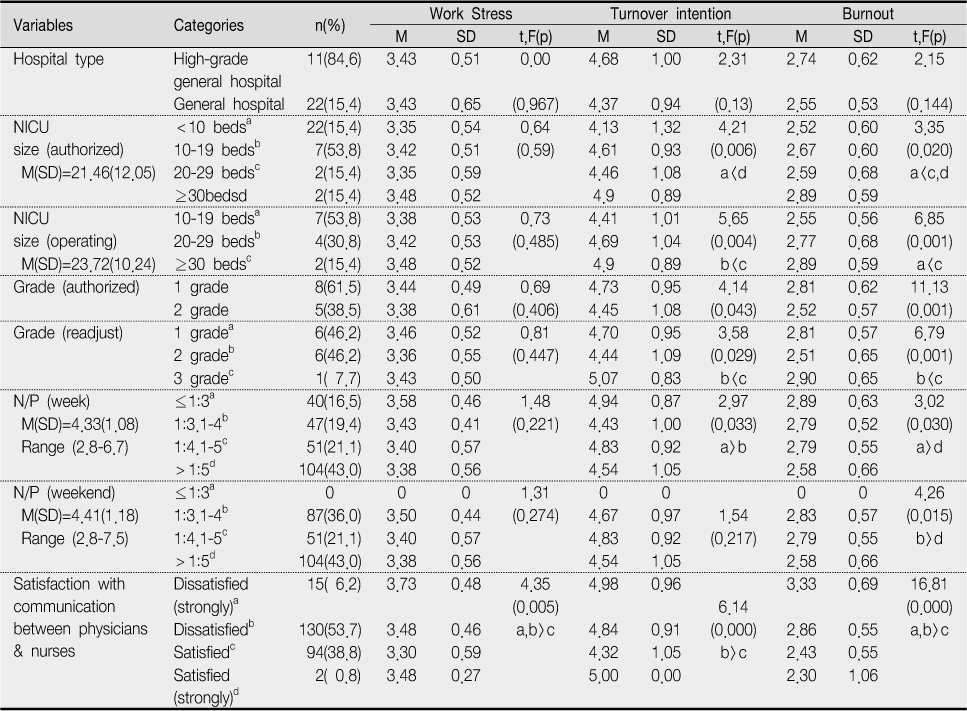1Full Time Instructor, Department of Nursing, Namseoul University, Korea.
Copyright © 2011 Korean Academy of Nursing Administration


*p<.05; †p<.01.
X1=Marital state; X2=Age; X3=Education level; X4=Career; X5=Position; X6=Number of Night duties/month; X7=Number of NICU Beds; X8=Grade; X9=Nurse to patient ratio (week days); X10= Nurse to patient ratio (weekend); X11=Communication; X12=Work stress; X13=Turnover intention; X14=Burnout.

Work stress, turnover intention & burnout scores according to demographic variables (N=242)
Work stress, turnover intention & burnout scores of work environment variables (Hospital N=13, Nurses N=242)
N/P=nurse to patient ratio.
Degree of work stress, turnover intention & burnout (N=242)
Correlation of demographic variables, work stress, turnover intention and burnout
*p<.05; †p<.01.
X1=Marital state; X2=Age; X3=Education level; X4=Career; X5=Position; X6=Number of Night duties/month; X7=Number of NICU Beds; X8=Grade; X9=Nurse to patient ratio (week days); X10= Nurse to patient ratio (weekend); X11=Communication; X12=Work stress; X13=Turnover intention; X14=Burnout.
Factors influencing burnout in participants
Adj R2 = Adjusted R2.
N/P=nurse to patient ratio.
*p<.05; †p<.01. X1=Marital state; X2=Age; X3=Education level; X4=Career; X5=Position; X6=Number of Night duties/month; X7=Number of NICU Beds; X8=Grade; X9=Nurse to patient ratio (week days); X10= Nurse to patient ratio (weekend); X11=Communication; X12=Work stress; X13=Turnover intention; X14=Burnout.
Adj R2 = Adjusted R2.